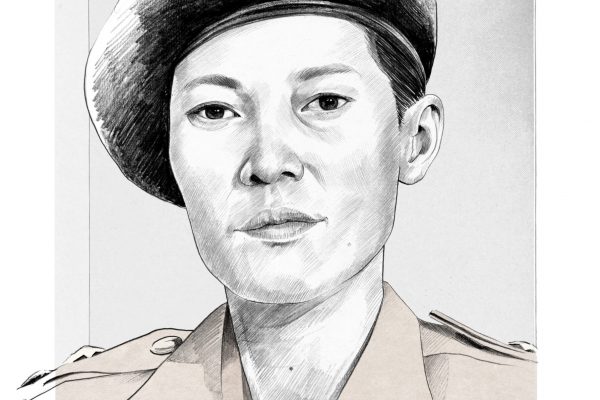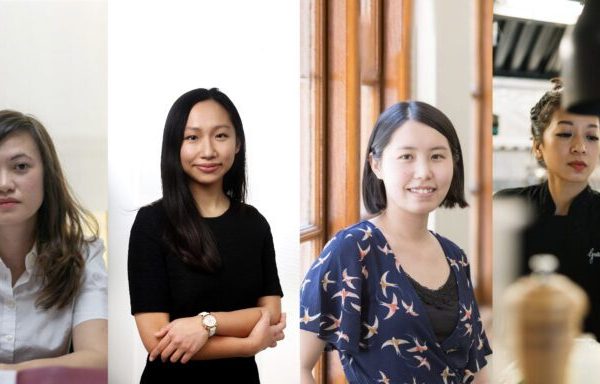Talk, Listen, Care: Why we need to raise awareness about mental health and suicide prevention in young people
Life in Hong Kong was ‘normal,’ filled with all the usual things: school, family meals, favourite TV programmes, sports, hiking and holidays. A highlight of the year was always our family ski trip to Whistler, Canada, where we were all in our element amongst the awe-inspiring mountains.
Life was just fine. And then it wasn’t.
Everything crashed around us when my son, Jamie Bruno, took his own life unexpectedly at the age of 15. Losing a child to suicide is beyond devastating. It challenges you to the very core, while pain and emptiness become your constant companions. I could have never imagined the total bewilderment I felt after losing him.
Why? How could this have happened? What if… If only… I should have… Self-recrimination runs deep.
Talking to a counsellor helped me through the desperate early days of grief. As there were no support groups, at least for English speakers, I was unable to find other parents in a similar situation. I relied on close family and friends.
I later found a psychologist who has helped me come to terms with what happened and to rebuild my life. You can’t do this alone; professional help is essential.
I knew early on that I had to respond to our tragedy in a positive way. In 2017, I set up The Weez Project in my son’s memory. My son was a passionate sticker artist (a type of street art) and was actively involved in the street art community, online and offline.
Why? How could this have happened? What if… If only… I should have… Self-recrimination runs deep.
Ann Pearce
The Weez Project, which is named after Jamie’s street art tag, supports young people facing mental health challenges and raises awareness about suicide in Hong Kong. In February, three years after we lost Jamie, we held an anti-stigma campaign called Weez Week.
The campaign’s theme was ‘Talk, Listen and Care’, which reflects our mission to normalise conversations about mental health. With this in mind, we set up the Weez Wall of Hope, a safe and nonjudgmental digital space for young people to express themselves and post hopeful, positive, encouraging messages to support each other.
Tapping into the healing power of art, we also worked with non-profit arts organisation HKWALLS to create The Weez Wall, an inspiring mural off Hollywood Road. Miguel, a street artist, volunteered to paint the wall, having known of Jamie through the street art community. The mural not only commemorates Jamie and his art but also raises awareness about mental health.
I’ve learned a lot since losing Jamie. Knowing what I know now, I believe there are many things we can do as parents and a community to help prevent other young people from taking their lives. Here is what we need to do:
Treat mental and physical health equally
As a community, we need to elevate mental health to the same level as physical health. In my situation, I knew enough to keep my family physically healthy. But as a person who was lucky to never experience mental health issues in the past, I didn’t expect it to be a problem in my family.
Now I know that one in four people experience a mental health problem in their lifetime, according to the World Health Organisation. Moreover, the Hong Kong Morbidity survey shows that about one in six adolescents has a diagnosable mental health disorder.
If we start treating mental and physical health equally, it would then become the norm to have everyday conversations about feelings and emotions. In the same way that we ask our loved ones how they are doing after an illness or when they look run-down, we should ask them how they are okay emotionally.
I believe that parents, teachers and youth alike should become familiar with the essential steps towards suicide prevention, just like we learn to perform life-saving techniques, such as the Heimlich maneuver or CPR.
If we start treating mental and physical health equally, it would then become the norm to have everyday conversations about feelings and emotions.
Ann Pearce
Talk about suicide in a non-judgemental way
Suicide is a complex subject. A person does not usually choose to take their life for one simple reason – there are normally multiple factors. In many cases, the person may not want to die, but they desperately want their pain, anguish or problems to end.
Unfortunately, suicidal thoughts are common and are a concern globally. Time to Change, a social movement in the UK, notes that around 20 per cent of the population experiences suicidal feelings in their lifetime. Young people who are still developing can be especially susceptible to such thoughts. This ideation can be a passing moment or a phase, or it can become an embedded state of mind.
You could save a life just by asking someone who appears to be in an unusually low mood whether they are thinking about hurting themselves. A simple gesture of empathetic acknowledgement shows that person you care.
Allow them time to respond and be sure to listen without interruption. Reassure them they can be helped, but don’t try to solve their problems yourself. It’s important to seek professional help if it feels beyond your capability or you are very concerned about someone.
Establish robust mental health curriculums in schools
Mental health education provides an opportunity for youth to acquire the knowledge, understanding, language and confidence they need to recognise their own emotions and develop positive coping strategies for themselves and others.
Students also need access to trained counsellors, hotlines and chatlines with the assurance of anonymity, so they can speak freely and without judgement.
To enable teachers to teach and communicate about these topics effectively, it’s also important to provide the necessary support and training. Alongside teaching mental health and well-being in the curriculum, schools should have in place a suicide prevention plan with guidance for when and how to intervene.
Last but not least, schools can help promote a common language and understanding about mental health in their community by sharing vital tools, resources and information with parents.
Examples of Jamie’s street art, courtesy of Ann Pearce
Urge the government to take action
The Hong Kong government has commissioned multiple reports on youth mental health and student suicide, as well as earmarked funding to invest in mental health. However, we have yet to see any details for follow-up actions, let alone a comprehensive plan.
In the words of Professor Paul Yip, the chairman of the 2016 Committee on Prevention of Student Suicides: “We strongly believe and emphasise that the seemingly meagre measures standing alone could yield great resilience and proactive strength when implemented together. We are confident that with ownership of the problem, leadership of the measures, and perseverance in our efforts, we can.”
I urge the government to commit to a Youth Suicide Prevention Plan, with an over-arching goal of zero youth suicides in Hong Kong by providing support and services. Our youth deserve nothing less and need our support now more than ever, especially with the ongoing social unrest, pandemic, academic pressure and cyberbullying.
Support local NGOs and mental health initiatives
Hong Kong needs both bottom-up and top-down initiatives. Public awareness campaigns, free and comprehensive resources, educational initiatives, and grassroots support networks will all help to destigmatise the conversation surrounding mental health.
After establishing The Weez Project, I started working with two leading mental health charities – KELY Support Group and Mind HK – whose values and commitment to supporting young people in distress aligned with mine
We supported KELY Support Group’s ongoing ‘Talk to Me’ school programme and worked together on events including charity football tournaments – which was fitting since Jamie was a keen player – to increase awareness about mental health and raise funds. I also took on an advisory role with Mind HK and now sit on its board.
In addition, KELY and Mind HK have joined together to develop ‘Coolminds,’ an initiative which delivers mental health education, training, and resources to young people and the adults in their lives. I’m proud that The Weez Project has been part of this meaningful programme.
It is possible to achieve zero youth suicides in Hong Kong, but we need to raise awareness and talk openly. Campaigns help in changing the conversation surrounding mental health, and success has been seen in other countries, including Heads Together and Time to Change in the UK.
As a community, we can all play a part in improving young people’s mental well-being and saving lives.
To find more resources on suicide awareness and mental health support in Hong Kong, visit The Weez Project’s online directory.

